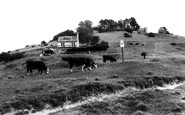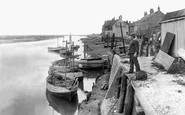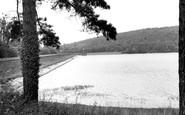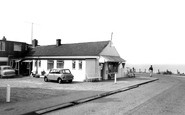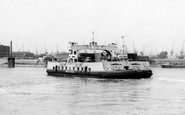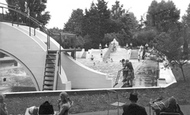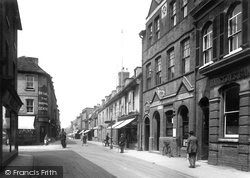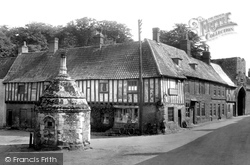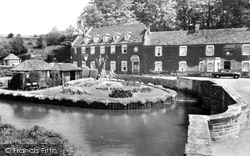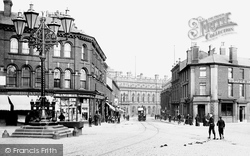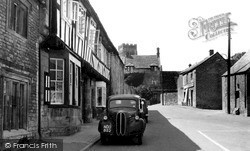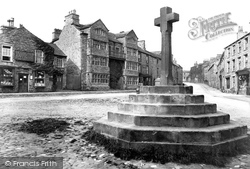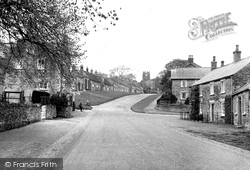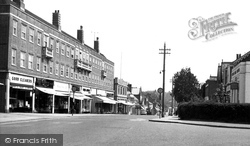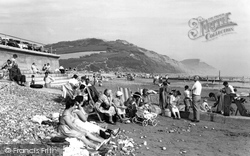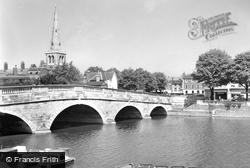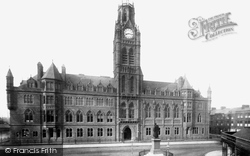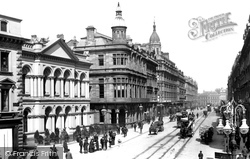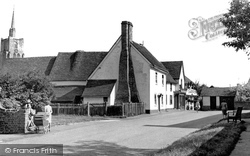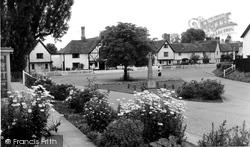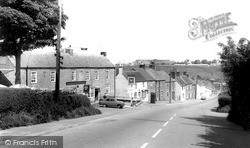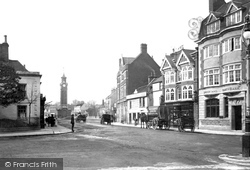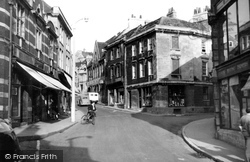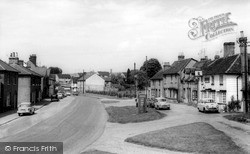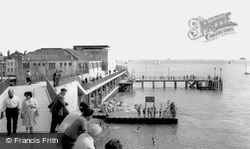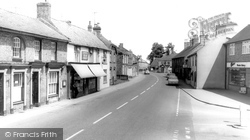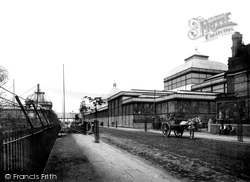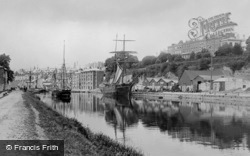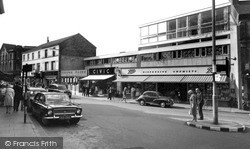Merry Christmas & Happy New Year!
Christmas Deliveries: If you placed an order on or before midday on Friday 19th December for Christmas delivery it was despatched before the Royal Mail or Parcel Force deadline and therefore should be received in time for Christmas. Orders placed after midday on Friday 19th December will be delivered in the New Year.
Please Note: Our offices and factory are now closed until Monday 5th January when we will be pleased to deal with any queries that have arisen during the holiday period.
During the holiday our Gift Cards may still be ordered for any last minute orders and will be sent automatically by email direct to your recipient - see here: Gift Cards
Places
11 places found.
Those places high-lighted have photos. All locations may have maps, books and memories.
Photos
54 photos found. Showing results 1,561 to 54.
Maps
494 maps found.
Books
25 books found. Showing results 1,873 to 1,896.
Memories
9,978 memories found. Showing results 781 to 790.
Christmas Eves 1960s
I was born in Stroud and lived in Cashesgreen and Paganhill until I was 11 when the family moved to Hertfordshire. My aunt lived at Minchinhampton in a house my sister now owns. As children we remember making the then very ...Read more
A memory of Rodborough in 1963 by
A Year To Remember
How well I remember arriving at Wells-next-the-Sea from Leicester as a new bride. My husband was a former high school pen-friend who was now in England serving in the U.S Air Force, having been in the country from his ...Read more
A memory of Wells-Next-The-Sea in 1951 by
Memories Of Swithland
My first memory of Swithland Village goes way back to the days when I was very young. The war was over and we had become accustomed to Holidays at Home instead of going to the sea-side. My parents bought a chalet in what we ...Read more
A memory of Swithland in 1947 by
Days Gone By
My memories of Greyabbey date back to 1940 just after the Blitz when Mum and her 3 sisters plus one sister-in-law with a bunch of kids relocated to Cardy, a small community appox. 3 miles from Greyabbey. I was 8 years of age at the ...Read more
A memory of Greyabbey in 1940 by
"The Cafe"
A familiar landmark for anybody who knows Overstrand. This picture could have been taken from my old front garden down Cliff Road. When I first became interested in cricket (1964-5 ish) around the age of 9 or 10, I would be watching the ...Read more
A memory of Overstrand by
Woolwich Ferry
There has been a ferry at Woolwich for many centuries but the people of Woolwich complained in the 1880s that West London had free access across the River Thames by bridges so why couldn't they have free travel? The river was too busy ...Read more
A memory of Woolwich by
Living In Eccles
I remember when I lived in Pembroke Avenue, as a youngest but before that we lived in Crambrooke Road, Einton, then in 1967 on St Patrick's Day we left to emigrate to Australia, I have not returned there since then but still have ...Read more
A memory of Eccles in 1967 by
Portwrinkle Beach
My parents used to take me there after school sometimes on their half day off from Menheniot C0-Op in the 1950s and early 1960s when I was a child. It was a steep climb down to the beach from the road but worth the effort. Once ...Read more
A memory of Portwrinkle by
Summer Trips To Martin"S
My sister Pauline and I used to come here with our mother, and sometimes father, on hot summer days, around 1948 to 1952 (age 6 to 10). We commuted three stops from Reading South in electric trains. I basically learned the ...Read more
A memory of Wokingham in 1950 by
Where I Was Born
My Beginning, at Sole Street near Cobham Kent. (9th March 1946 - 2nd January 1951) I was born on Saturday March 9th 1946 at 3.29pm at Temperley, The Street, Sole Street, Kent. I was delivered at home by the ...Read more
A memory of Sole Street in 1946
Captions
2,019 captions found. Showing results 1,873 to 1,896.
Barclays Bank on the extreme right was built in the early 19th century. It is now owned by Dewhurst the butcher, and apart from a rather more modern frontage, survives intact.
A large number of religious houses exist, and there was an Augustinian priory here as far back as 1061. The half-timbered jettied building has a steep roof of cascading pantiles.
Parts of the hotel date back to 1640, and would have been known to the famous and infamous, royalty and riff-raff, in the heady days of Bibury Races, frequented in their day by Charles II and Nell
Stationers and Bookshop.The large window proudly proclaims that they have a Bible and Prayer Book Department.The horse-drawn tram heads off towards the Town Hall.The Sudell family can be traced back
The Ford Thames van bears a DD Gloucestershire registration; behind it we can just see the back of the latest Thames van which superseded it.
The TV series All Creatures Great and Small was filmed here, which put the village back on the tourist trail in the 1970s.
In nearby Newburgh Priory possibly lie the headless remains of Oliver Cromwell - his daughter is reputed to have brought the body back from Tyburn after the hanging of his corpse in 1660, following the
Sited on the Haywards Road junction, the white building on the extreme right is Lloyds Bank; this building was later demolished, but Lloyds are still on the same site.
Jane Austen writes in 'Persuasion': 'Charmouth with its high ground and extensive sweeps of country, and still more, its sweet retired bay, backed by dark cliffs where fragments of low rock
Murkett Brothers car showrooms on the opposite bank in the 1955 picture indicate an unlikely egalitarianism in the juxtaposition of window signs for both Rolls Royce and a caravan agency.
There exists a rather persistent but erroneous myth among the locals of Barrow-in-Furness that the town hall was built back to front.
The photograph shows the Provincial Bank, which had in fact been in 'Hercules Place', now absorbed. Its railings and shrubs helped to put it in line with the new Avenue, and it became number 2.
It is difficult to imagine a devastated village when we look back at this tranquil High Street.
He was convicted and was 'whipped until his back was bloody' in Angel Inn Yard, Hertford.
The Bell and Crown (left) is a very old inn dating back to 1675, and it stands on the old coaching road from London to Barnstaple.
On the right is a branch of the London and County Bank, with Dorset's shop next door exhibiting a gleaming display of light fittings.
Visit the museum and step back in time among the mahogany counters, the coloured bottles and rows of medicines.
It rarely looks back to the past and to the time when, for example, Daniel Clerk the grave digger kept a large basket of human bones in his kitchen, claiming that he knew whose remains each was.
That evening Crabb went to Havant and caught a train back to Portsmouth. A frogman was seen entering the sea at the mouth of Portsmouth harbour.
Barclays Bank beyond has gone and been replaced by Goodwins hardware store. Further on was Hall's men's wear shop, but it too is no more.
This is a good close-up view of the main exhibition building that backed onto Talbot Road, which got its name when Sir Humphry Trafford married Lady Annette Talbot in 1823.
Barclays Bank beyond has gone and been replaced by Goodwins hardware store. Further on was Hall's men's wear shop, but it too is no more.
This approach to the city is picturesque, with the canal winding its way through the meadows between reed-fringed banks.
This view looks back towards Woolworth's from Bakehouse Hill, where the mini-roundabout marks the convergence of the High Street, Gold Street and Lower Street.
Places (11)
Photos (54)
Memories (9978)
Books (25)
Maps (494)



